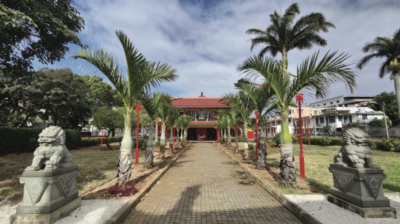Reflecting on Gender, Peace & Security in the Northern Mozambique Conflict
The literature about the conflict in Northern Mozambique focuses mainly on religion, its links to international terror networks, poverty, destitution, and lack of opportunities for the youth—as an ungendered category but presumably male. Women appear as victims of kidnapping, sexual violence, and the face of the displaced population. Emerging research suggests different roles of women in the insurgency, from recruiters to active combatants. As escapees, they have become a source of information about the insurgents’ inner structures and practices. While men are immediately suspected by virtue of their gender.
I am interested in adding to this emerging literature by inquiring whether there are conflicting views about the place of women within the insurgency and local society where these women originate. I particularly would like to explore the historical place of women in war and violence, its transformative potential, and the inability of women to find equal placement in peace-seeking initiatives.


